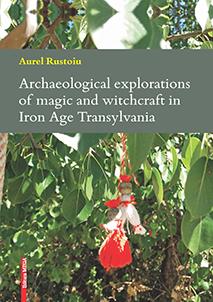
CONTENTS
FOREWORD
Acknowledgements
1. INTRODUCTION
1.1. Archaeology of magic and witchcraft
1.2. Magic and witchcraft, sorcerers and witches: short terminological observations
1.3. The geographic, cultural and chronological framework
2. SORCERERS AND WITCHES
2.1. Deceneus (Dekinais): “a man wizard (andra góeta) who wandered through Egypt” [Strabo VII. 3. 11 (C. 303)]
2.2. The witch from Remetea Mare
2.3. A female shaman of the Scythian age from Transylvania
3. SHAMANIC TRANCE AND THE ALTERED STATE OF CONSCIOUSNESS
3.1. Consumption of psychoactive plants
3.2. Ritual consumption of alcoholic beverages and its instruments. Vessels with anthropomorphic handles from the Late Iron Age (4th–3rd centuries BC) in the eastern Carpathian Basin
4. OTHER MASTERS OF MAGIC: BESIDES WIZZARDS, ONE BLACKSMITH
4.1. Craftsmanship and identity in the 4th–3rd centuries BC
4.2. Metallurgy and magic
5. APOTROPAIA: PREVENTIVE MAGIC
5.1. Physicians, healers and empirical cures
5.1.1. The grave of a “Celtic” physician from Galații Bistriței (Bistrița-Năsăud County)
5.1.2. Greek and Roman physicians in pre-Roman Dacia
5.1.3. Healing herbs and magical remedies
5.2. Amulets – weapons against the evil beings
5.2.1. Glass, bronze, amber and coral: protective beads and necklaces
5.2.2. The hidden magical power of some amulets
5.2.3. The magical power of sounds
5.2.4. Shooting the evil
6. FUNERARIA MAGICA: MAGICAL PRACTICES IN FUNERARY CONTEXTS
6.1. Pars pro toto or another magical practice? Grave no. 49 with a linchpin from the Late Iron Age cemetery at Fântânele-Dâmbu Popii
6.2. The magic of rings
6.2.1. Lords and ladies of the rings
6.2.2. Magical bracelets
6.2.3. Nodus Herculeus: annular ornaments and magical knots
7. VOODOO DOLLS: THE DARK SIDE OF MAGIC
8. CLOSING REMARKS
BIBLIOGRAPHY





































